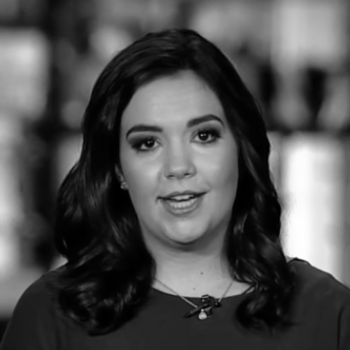Syracuse University opens $5 million social justice center
None of the speakers for the center's launch have a background in conservative thought or activism.
Syracuse will use an alumni donation to open a Social Justice Center "to foster proactive, innovative and interdisciplinary approaches to issues related to justice, equity & inclusion."
Although the center's stated objective is to go "beyond partisanship," the lineup of speakers at the building's opening ceremony favors the left.
Syracuse University in New York plans to open a $5 million Social Justice Center within its School of Education on Friday, thanks to an alumni donation.
The Lender Center for Social Justice “aspires to foster proactive, innovative and interdisciplinary approaches to issues related to justice, equity & inclusion, according to a university news release, and will provide symposia, student and faculty fellowships, and research aid.
The social justice center will be directed by faculty members Marcelle Haddix and Kendall Phillips. Haddix, Syracuse’s School of Education chair of Reading and Language Arts and dean’s associate professor, is an active participant in social justice movements like Black Lives Matter.
She has participated in numerous social justice panels, including a Black Lives Matter in Academia webinar, and delivered the keynote address at a Social Justice Teach-In where Black Lives Matter and Planned Parenthood also made presentations.
[RELATED: School offers refuge to victims of ‘social justice crises’]
Phillips, the other faculty co-director and communication and rhetorical studies professor, recently taught a course on President Trump’s “celebrity presidency”. He has told the HuffPo that unlike former president Ronald Reagan, President Donald Trump does not even pretend to play a presidential role.
“We envision the Center serving as a place for innovative and proactive approaches to social problems and concerns,” Phillips told Campus Reform. “We want to inspire new ways of thinking about old problems and to create a place where people can rise above old ways of thinking, partisan politics, and disciplinary blinders and, instead, work across different points of view to develop new approaches.”
“I suppose some folks might be concerned that we will be promoting a single point of view or serving a particular set of political values,” he continued, “but, that is exactly the opposite of what we want to accomplish. Real innovation will require real dialogue across multiple points of view. We hope to create just such a dialogue.”
The Lender Center for Social Justice’s launch will feature opening remarks, a keynote address, and panel discussions from multiple speakers. Although some speakers have backgrounds in reproductive justice and the Black Lives Matter movement, no speakers have a background in conservative thought or activism.
[RELATED: College Men’s Center to focus on ‘reconstructing masculinity’]
“Syracuse is actually a pretty politically diverse campus. We have a strong chapter of College Republicans as well as College Democrats,” Phillips told Campus Reform, when asked about how the center plans to engage students and speakers from both sides of the aisle. “And, both our Congressional Representative (John Katko) and State Senator (John DeFrancisco) are Republicans.”
He did not detail any specific plans the center has to work with students and speakers from different perspectives besides mentioning that the Center’s objective was to “push us beyond partisanship.”
Kevin Kumashiro, a former education dean at the University of San Francisco and founder of the Center for Anti-Oppressive Education, will deliver the launch’s keynote address. The university describes him as a “recognized expert in educational equity and social justice.”
Kumashiro has published books and articles including Queering Elementary Education and Against Common Sense: Teaching and Learning Toward Social Justice.
In Against Common Sense, Kumashiro encourages students and teachers to engage in “anti-oppressive education” and to “examine the underlying stories of the curriculum and the ways the stories can both reinforce and challenge oppression.”
The book also teaches that “queer activism can suggest ways of thinking that go beyond common sense” and that “queer teaching always works through crisis.”
Syracuse University, The Lender Center, and Marcelle Haddix did not respond to request for comments in time for publication.
Follow the author of this article on twitter: @abigailmarone

